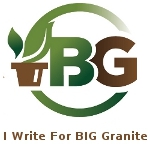Benefits of Using Leaf Mulch For Your Garden
Instead of raking and bagging the leaves in your yard, you can take those leaves and turn them into organic mulch for your garden. In the fall, you can easily produce a large quantity of mulch due to the large numbers of leaves falling off the trees. Pieces of bark, twigs and other organic yard material can also be added to the leaf mulch. Leaf mulching has many positive effects on the soil and your plants.
When applying the leaf mulch around your plants, it forms a sort of barrier between the soil and the elements. The result of this is that less water is lost from the soil to evaporation. This is especially beneficial in areas with watering restrictions or drought conditions.
Mulching with leaves can actually save you some work in the future. As long as you apply the leaf mulch deeply, you end up with less weeds than usual. This is because the mulch smothers any currently existing weeds and makes it difficult for new weed germination. The end result is less weeds for you to pull up.
Effect on Soil
If you worry about your plants dying or getting damaged from the temperature change from season to season, leaf mulch can help with that too. When applied in your garden or flower bed, the mulch keeps the soil temperature warmer during the winter and cooler during the summer. The end result is a more even temperature in the soil all year long, which lessens the changes felt by the plants.
Unlike inorganic mulch, leaf mulch actually enhances your soil as it breaks down. The decaying organic material in the mulch ends up transferring nutrients to the soul to enrich it. And it ends up becoming topsoil.
The soil surface is also positively affected by leaf mulch. The movement and absorption of water by the soil is actually improved because the mulch prevents crusting. Crusting is when the layers of soil dry rapidly and cement together into hard, impermeable layers. This can cause a lot of problems for the plants, including slow death due to lack of water and sunlight absorption.
Effect On Plants
Your plants are healthier when you use leaf mulch because they are less prone to soil borne diseases. This is because the mulch works to prevent any soil splashing in the garden or flower bed. As a result, the diseases are not able to splash up onto your plants. Another bonus is that you do not have to deal with soil erosion when using leaf mulch.
You should apply the mulch when you first plant your new garden plants. For older plants, early spring is the time of year when you need to apply the mulch. This is the best time because it is usually when the plants start to grow and germinate. You do have to replenish leaf mulch more often than an inorganic mulch. This is because the organic leaf mulch decomposes at a quicker rate than inorganic mulch. Over time, you end up applying less leaf mulch because the plants fill in the garden or flower bed.







